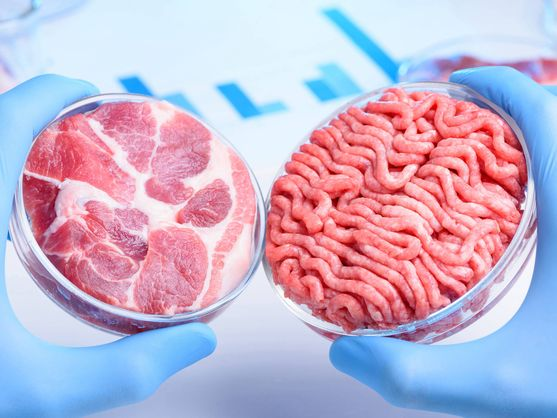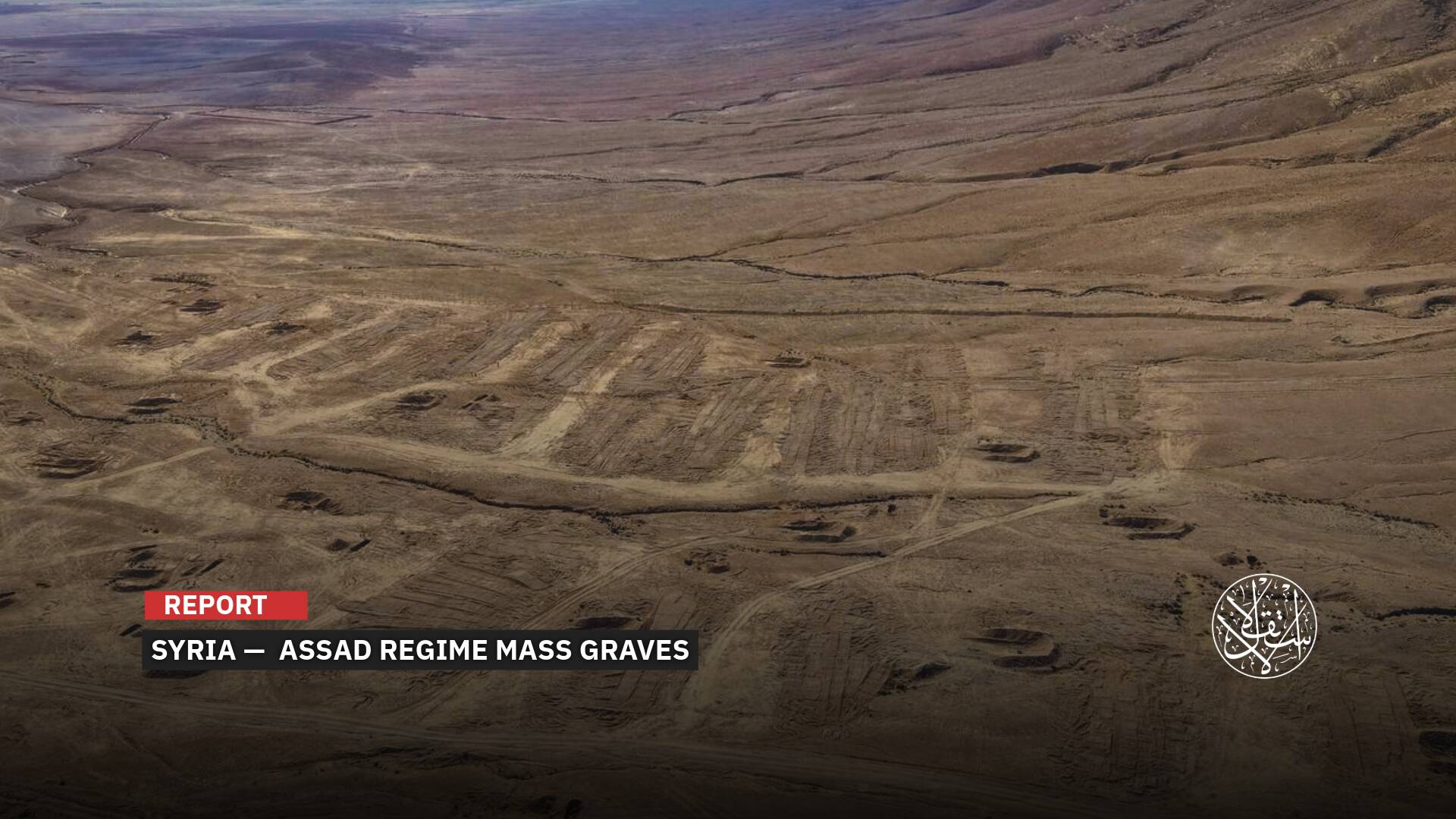Lab-Grown Meat – A Real Food Revolution or a Profitable Industry?

“Want to help save the planet? Stop eating beef.” This is what American billionaire Bill Gates, founder of Microsoft, said in a recent interview with the MIT Technology Review.
Bill Gates, along with many environmental institutions, believes that meat has a major role in polluting the climate, as it is one of the high sources of greenhouse emissions.
However, other researchers believe that Gates' constant promotion of cultured beef in rich countries as a solution to the problem of climate change ignores reality and only enhances the investments of tycoons like him.
‘Lab-grown meat’ or as it is called ‘fake meat’ and also ‘cultured meat’ begins to be produced by taking tissue from cows or chickens and others, and placing it in a special bioreactor in a manner similar to reproduction in the animal’s body and without any genetic modification, with the aim of obtaining alternative meat from traditional meat with the same benefit and in larger quantities.
Lab-Grown Meat
MIT Technology Review published on February 14 its interview with tech billionaire Bill Gates, in which he discussed his new book, ‘How to Avoid a Climate Disaster’, stressing the benefits that rich countries can produce by moving to 100% artificial beef.
“You can get used to different tastes, and claim that manufacturers will make them taste better over time. Ultimately, behavior must be changed,” he said.
Gates explained that “80 poorest countries still have to rely on meat consumption, while the future must be based on plant-based alternatives for developed countries.”
As for the relationship between meat consumption and environmental pollution, cows have been shown to emit methane, which is 84 times more powerful than carbon dioxide, according to the Environmental Defense Fund.
Gates emphasized that eliminating significant emissions from cow burps and fertilizers to reduce methane emissions would be nearly impossible, noting that eating cultured meat is the only viable option.

For years, US billionaire Bill Gates has called on rich countries to eat cultured meat as a healthy, environmentally friendly alternative to beef, and as part of his own efforts to reduce methane emissions from livestock, especially cows.
Gates' campaigns have begun to pay off after the alternative foods industry grew U.S. retail sales 27% in 2020, bringing the total market value to $7.8 billion, according to the Plant Based Foods Association (PBFA).
However, the traditional meat industry produces billions of animals and generates more than $1 trillion annually.
A group of the world's richest people, led by Bill Gates, Jeff Bezos and Al Gore, is backing the Nature's Fynd, with a funding value of $158 million, to develop enough food for humanity without the need for land, water or even air, according to a report published by CNBC in July 2021.
The startup is developing meat-free burgers, dairy-free cheese, lean chicken nuggets, and other products using a fermented volcanic microbe derived from Yellowstone National Park, which includes all 20 amino acids, as well as zero cholesterol and trans fats.
Cell farming has also been promoted by Paul Shapiro, CEO of the Better Meat Company, and author of the best-selling book Clean Meat: How Growing Meat Without Animals Will Revolutionize Diners and the World.
Shapiro emphasized that “lab-grown meat is key to feeding a world population that will reach about 9.5 billion by 2050, as well as respecting animals and preserving the environment.”
There are currently dozens of companies that provide good-tasting, affordable alternative meats, such as: Beyond Meat, Impossible Foods, Gardein, Quorn Foods, Maple Leaf Foods, Amy's Kitchen, Morningstar Farms and Sunfed Meats.

Environmental and Food Failure
On the other hand, CEO of the National Cattlemen's Beef Association (NCBA) Colin Woodall denounced what billionaire Bill Gates said about the importance of lab-grown meat in solving the problem of climate change, explaining in an opinion article published by Drovers website on March 31 that “only 2 percent of total greenhouse gas emissions in the United States come from beef production.”
This figure is significantly lower compared to sectors such as energy production or transportation, which together produce 54 percent of US greenhouse gas emissions, according to the U.S. Environmental Protection Agency (US EPA).
“Gates chose to focus on beef production because he is investing heavily in the same fake meat companies he promotes. So it's no surprise that he continues to push an agenda that would replace real beef with protein alternatives in rich countries,” Mr. Woodall said.
“What Gates fails to reveal is that the reality of fake meat is very different from the fantasy he sells. In every society around the world, there are people who do not get enough from food, especially protein sources. Limiting their choices or imposing expensive fake meat, as Gates suggests, is typical of his elitist thinking,” he added.
“Worse, the fake meat promoted by Gates is extensively processed, high in sodium, and more expensive than real beef. Thus, it does not solve any of the nutritional problems facing consumers,” he continued.
“Fake meat also fails on the environmental front, as the real impact of fake meat production is much greater than Gates would like to admit. The manufacturing process requires massive amounts of electricity to incubate a product in a lab, and these same companies that claim to be improving the planet often send large amounts of plastic and other materials to landfills as a byproduct of the manufacturing process,” according to Mr. Woodall.
“We must not forget that livestock performs many functions other than producing meat in the laboratory, as it contributes to the recycling of large quantities of plant waste that humans cannot consume and produces fertilizers, as well as pastures capture carbon and store it in the soil,” he added.
Mr. Woodall concluded, “What companies that manufacture fake meat are doing is an empty sales announcement and shoddy product. Gates and the companies that promote fake meat are simply another set of profit-seeking corporate interests.”

A More Sustainable Alternative
According to the Food and Agriculture Organization (FAO), nearly half of the harvest worldwide is needed to feed livestock for traditional meat production, with a large proportion of greenhouse gas emissions (18%) and land use (30%), as well as global consumption of water (8%) and energy.
The FAO also estimates that meat consumption will double by 2050, while meat production is already nearing its peak.
Thus, creating alternatives from animal protein from plants, producing dairy products through fermentation and growing meat in laboratories can provide more sustainable alternatives that reduce environmental damage while still providing nutritional value and taste.
Consumer acceptance of lab-grown meat is likely to be low at first, but increased awareness, marketing and lower costs are expected to lead to higher demand in the future.
In a 2018 research paper, researcher Jamie Hollywood and Adam Smith Institute President Dr. Madsen Pirie discussed how lab-grown meat can save lives and the environment.
“The demand for meat has increased with the increase in the income of individuals. During the 1960s, meat consumption in East Asia was only 8.7 kg per capita, but thirty years later this figure was 37.7 kg, an increase of more than 330%, which led to the abandonment of large tracts of land for meat production,” he said.
“For example: 19 people can be fed from just one hectare of rice, while only one person can be fed per hectare of livestock,” according to the research.
“Mastering the cultivation of meat in the laboratory was difficult and expensive. Just five years ago, burgers made with lab-grown meat cost $250,000, but now the price has dropped to just £8,” Dr. Pirie said.
According to a June 2011 study by the American Chemical Society, compared to traditional meat production, lab-grown meat can reduce greenhouse gas emissions by 78-96%, requires 7-45% less energy, 82-96% less water and 99% less land area.
However, a study published in February 2019 by Frontiers in Sustainable Food Systems, a publisher of scientific journals, indicated that “over the long term, the environmental impact of lab-grown meat could be higher than that of livestock.”

“Although lab-grown meat is presented as a high-tech product that has the potential to be both environmentally and ethically responsible, it can only become a substitute for traditional meat by conquering the global market,” according to The Conversation website in its November 2019 report.
In other words, by selling artificial meat at affordable prices to consumers and profitable to producers, this requires low-cost mass production techniques, according to the report, noting that the effects of these production processes on health and the environment will not be taken into account due to the inflation of the volume of production and the increase in profits.
Sources
- Bill Gates: Rich nations should shift entirely to synthetic beef
- Bill Gates: Let Them Eat Fake Meat
- ‘Cultured’ meat could create more problems than it solves
- Bezos, Gates back fake meat and dairy made from fungus as next big alt-protein
- Don't have a cow, man: The prospects for lab grown meat [Research]
- Environmental Impacts of Cultured Meat Production [Study]
- Climate Impacts of Cultured Meat and Beef Cattle [Study]










